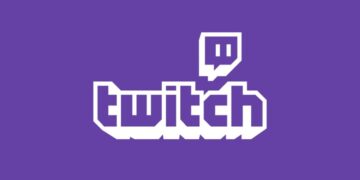Whether you’ve just graduated and are looking for a career in web design, are about to start a new job, or are established in the world of web designers, gaining a new technology skill is always a positive step. While you don’t need a knowledge of coding to build a website, being familiar with HTML, CSS, and JavaScript makes you a great asset to any multidisciplinary design team.
In its simplest form, coding allows us to communicate with computers, telling them what to do and how to behave. It is the basic building block for designing any digital product. Add coding to your knowledge of User Interface (UI), User Experience (UX), and Search Engine Optimization (SEO), and you have the skill sets to become a talented and employable web designer.
Here are the advantages of learning coding for designers.
1. It gives you another transferable skill
There is never a downside to learning a new skill. Learning the fundamentals of coding helps you develop a better understanding of the whole design process. With this knowledge, you’ll see the scope of what is possible with any design project as well as an idea of where future difficulties may lay. You’ll also have given yourself the tools to overcome these difficulties. On a personal level, acquiring new skills keeps your mind agile and develops your creativity. This is a bonus in both your personal life and your career.
2. It increases the range of design tools available to you
While coding know-how isn’t essential for web designers, some newer design tools are more effective with at least a basic knowledge of it. For example, to get the best out of Framer, some knowledge of JavaScript is essential. Once you have mastered one type of coding, you’re better able to master other codes you encounter.
3. It helps you maintain control of your design project
As a web designer, you’re going to be responsible for creating a consistent visual language for the final product. This visual language translates into a problem-free user experience. Trying to explain your vision to a coder without something getting lost in the translation can be tricky. However, with some knowledge of how to code, the number of errors that may occur between design and implementation is reduced.
By giving your web developer, some code instructions along with your design documents, you’ll maintain greater control of the finished product. Having this control leads to a reduction in project time, saving the customer money and freeing you up to tackle other design commissions.
4. It adds a dose of realism to your ideas
You have this wonderful idea for your web design, visualizing an impressive finished product. But, are these ideas realistic? When you know how to code, you can be more realistic about your design parameters. You’ll know what is or isn’t possible. You may even have an idea for making the impossible possible.
5. It allows you to communicate effectively with your design team
As a web designer, you’ll probably be working as part of a development team. Having at least a basic knowledge of what other team members are doing makes this collaboration work smoothly and effectively. When you understand the basics of languages such as HTML and CSS you are better able to communicate professionally with your tech colleagues. Having this common language lets you pitch your ideas confidently and ask team members questions while giving the right instructions for bringing your ideas to fruition.
6. You may discover a new passion
Having graphic design skills is a great career opener but learning how to code as well opens an entirely new door into the design world. It changes how you view the design, enabling you to be even more creative and innovative. Being able to start a design project totally from scratch is inspirational, the limit to what you can create depends only on your ideas and vision. And, by knowing how to code, your career may turn into your hobby as well.
7. It makes you more employable
Every modern company has ongoing web design needs. This means that there is no shortage of career prospects in digital design. These careers come with satisfying salaries, location flexibility, and very often, the chance of setting your own hours and work-life balance. The more design skills you can demonstrate on your CV and during the interview process, the more attractive you become to employers who are looking for truly multidisciplinary teams.
Once established in a career, learning a new skill opens doors to promotion. With the ability to both design and code, your value to your employer soars. Instead of bringing in outside coders with the expense that involves, your skills can be utilized. Plus, you’ll be much more confident in pitching ideas and advising clients.


































































































































































































